1. Don’t Make Your Bed as Soon as You Wake Up
Making your bed as soon as you wake up has become a common practice for many families, including mine. Since I was young, my mother would always remind me to do this. However, I recently realized that this habit is more significant than just a simple task.
When we sleep, our bedding accumulates sweat and dead skin cells, creating an ideal environment for bacteria and viruses to thrive. This can lead to polluted air inside the bedding. To protect our health, it is best to open the windows for ventilation and lay the bedding flat to allow moisture to dissipate. In the meantime, you can attend to other tasks such as personal hygiene or household chores. By the time you return, you can easily and safely fold the bedding.
Making your bed not only keeps your living space tidy but also contributes to the health and well-being of your family.
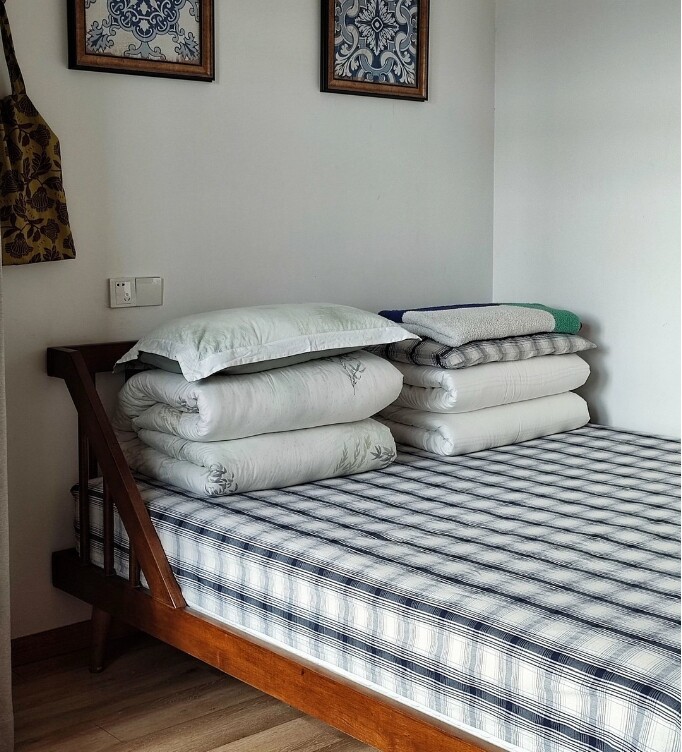
Making your bed right after waking up can trap bacteria inside the bedding.
2. Avoid Freezing Meat Directly in Supermarket Plastic Bags
Many people buy large quantities of meat and store it in the freezer without paying attention to proper storage methods. They often place the meat directly into the freezer in its original supermarket plastic bag, unaware that these bags are not designed for long-term food storage. This can lead to prolonged exposure to toxic chemicals from the plastic, which can contaminate the meat and pose health risks when consumed. To safely store meat, consumers should use specialized food storage bags to tightly wrap the meat before placing it in the freezer.

The plastic bags and containers that food comes in from the supermarket should not be placed directly into the refrigerator.
3. Avoid Putting on Underwear Right After Showering
When I was young, my mother would insist that I put on clothes immediately after showering, as she was concerned that I would catch a cold. However, this made me feel uncomfortable because my body was still wet. Nonetheless, I obeyed to avoid getting sick.
Now, I realize that this habit is not beneficial for health. Putting on clothes, especially underwear, while your body is still wet can promote bacterial growth. Additionally, tight underwear can restrict blood flow, causing further discomfort. It is best to thoroughly dry your body first and then wear loose-fitting sleepwear. Only when your body is completely dry should you put on your underwear.

Putting on underwear when your body is still damp can promote bacterial growth.
4. Wash Underwear with Cold Water
When washing underwear, many people opt for warm water, believing it to be more effective at killing bacteria and removing stains. However, this is a misconception. Bodily fluids contain proteins, and washing with warm water can cause these proteins to break down and become more difficult to rinse away. As a result, stains and bacteria may adhere more stubbornly to the fabric, making the laundering process less effective. Therefore, the correct way to wash underwear is to use cold water to ensure both cleanliness and the preservation of the fabric’s quality.
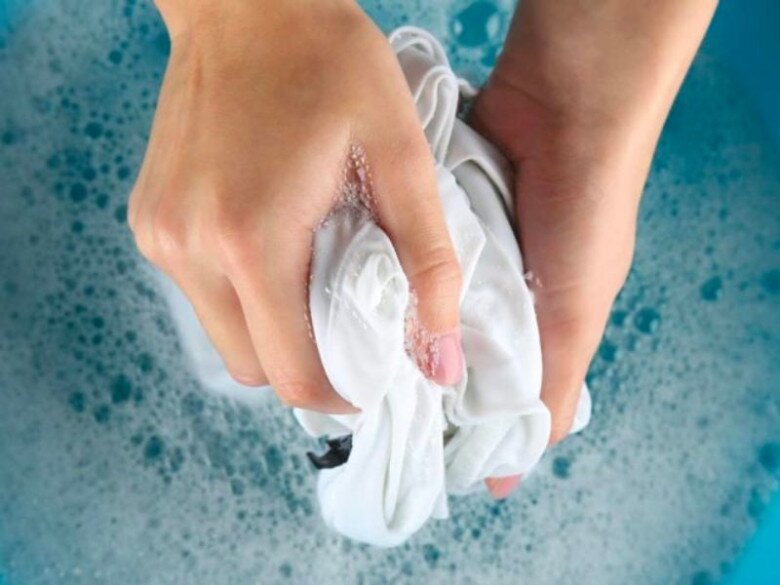
Washing underwear with cold water is more effective at removing bacteria.
5. Promptly Hang Up Wet Clothes
After washing, clothes need to be dried immediately. However, in our busy lives, it is easy to forget to hang or dry clothes promptly after the washing cycle is complete. As a result, clothes may develop an unpleasant musty odor. This is mainly due to the combination of a damp environment inside the washing machine and high temperatures, which creates favorable conditions for bacterial growth. To avoid this issue, users should quickly remove clothes from the machine and hang them to dry as soon as the washing cycle finishes.

Wet clothes should be hung to dry immediately after washing to prevent the growth of mold and bacteria.
6. Flush the Toilet Without Closing the Lid
Many people have the habit of flushing the toilet without closing the lid first. Although this may seem like a minor action, it can have serious health implications. When the flush is activated, the resulting vortex can spread microorganisms, including bacteria and viruses from feces, into the air. These microorganisms can then settle on nearby surfaces such as sanitary ware, clothing, or towels. To protect the health of yourself and your family, always close the lid before flushing.
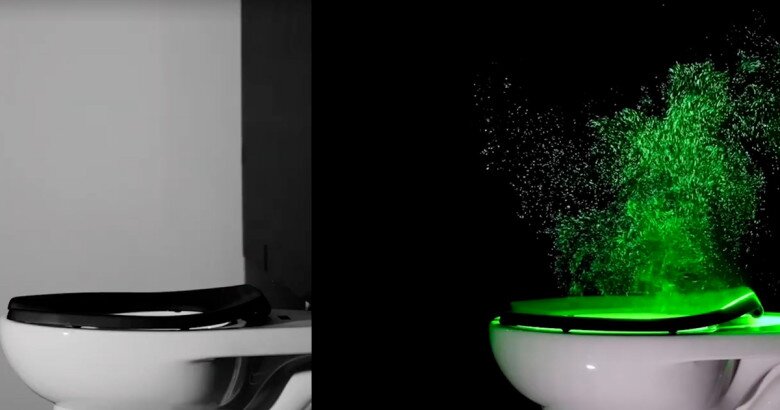
Bacteria will be dispersed into the bathroom environment if you flush without closing the lid.
7. Soak Dirty Dishes in the Sink for an Extended Period
Many families have the habit of soaking dishes to facilitate easier cleaning. However, according to research, this practice can actually make the dishes dirtier. Soaking dishes in the sink or dishwasher creates an ideal environment for bacteria and fungi to thrive, increasing the risk of diarrhea, food poisoning, and other infections, especially in individuals with weakened immune systems.
When dishes are soaked for extended periods, bacteria can rapidly multiply, especially in warm or hot water. According to experts, bacteria in food can double every 20 minutes, and this rate increases significantly after two hours. Within 24 hours, the bacterial count can reach trillions. Furthermore, if dirty dishes are soaked overnight, the stagnant water can become a breeding ground for flies and mosquitoes, leading to food poisoning and cross-contamination of gastrointestinal diseases.
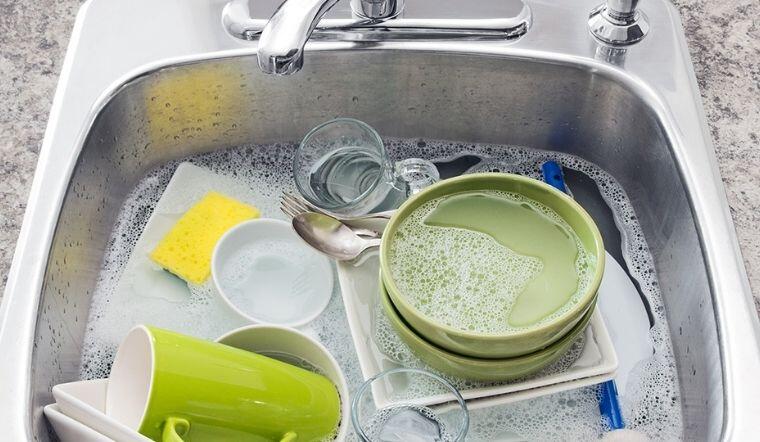
The habit of soaking dishes for too long is a dangerous practice.
8. Cut Vegetables Before Washing
Washing vegetables and fruits may seem like a simple task, but if not done correctly, it can lead to food contamination. Many people have the habit of cutting vegetables before washing them, believing that this will make them cleaner. However, this not only results in a loss of nutrients but also increases the risk of food contamination.
When vegetables are cut, water-soluble nutrients are lost from the cut surfaces. Moreover, it can be challenging to thoroughly clean away pesticide residues and dirt from the cut surfaces, especially when they are exposed to air for extended periods. Additionally, soaking vegetables for too long can increase contamination levels as pesticides on the surface may dissolve into the water, and the vegetables can reabsorb these harmful chemicals.
Therefore, to ensure food safety, the most effective method is to keep vegetables whole, gently rinse them under running water, and soak them for no more than 3-5 minutes.
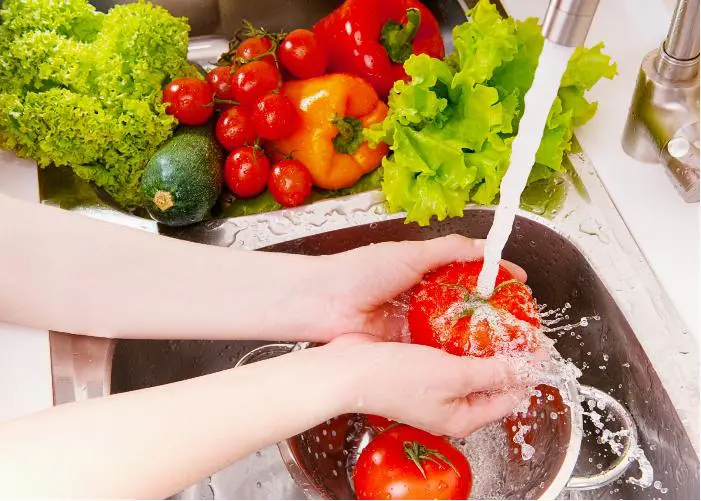
Washing vegetables incorrectly can cause more harm than good.
9. Stacking Newly Washed Dishes
Stacking dishes immediately after washing is not a good practice. While many people do this to save space, stacking wet dishes can lead to water retention, creating an ideal environment for bacterial growth. Instead, dishes should be stored vertically in a well-ventilated area, allowing moisture to evaporate and reducing the risk of bacterial growth.
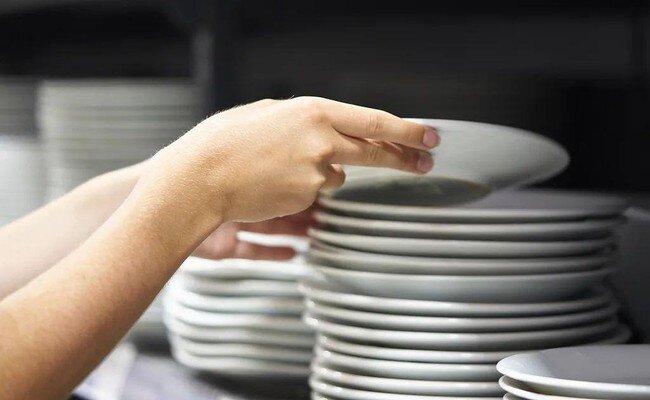
10. Vigorously Scrubbing Away Dead Skin Cells During a Shower
Many people believe that vigorously scrubbing their skin during a shower leads to better hygiene. However, according to experts, this level of exfoliation is not necessary from a physiological perspective. Over-exfoliation can damage the skin’s protective barrier, leading to moisture loss and increased skin sensitivity.
Therefore, it is important to adjust our shower habits. Moderate scrubbing, especially during seasons other than summer, is sufficient. Additionally, using a soft and gentle loofah can also help protect the skin.
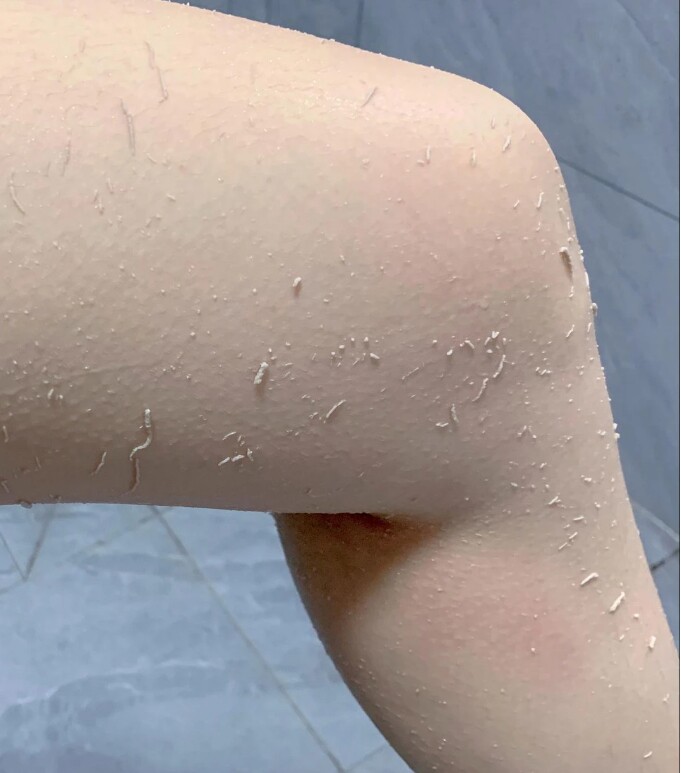
Aggressive scrubbing can harm the skin more than it cleanses it.
6 Cleaning Habits That Feel Effective But Are Actually Making Your Home Dirtier
The art of cleaning is often riddled with misconceptions. Many individuals believe they are employing the correct techniques, yet when scrutinized through a scientific lens, these methods are revealed to be erroneous. It is time to debunk these cleaning myths and embrace a more enlightened approach to tidying our spaces.





































